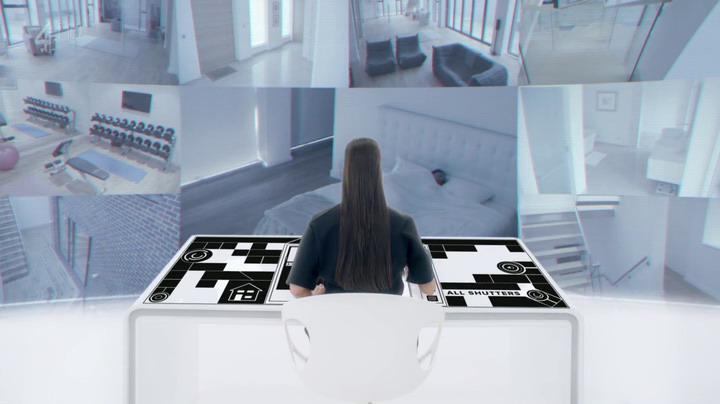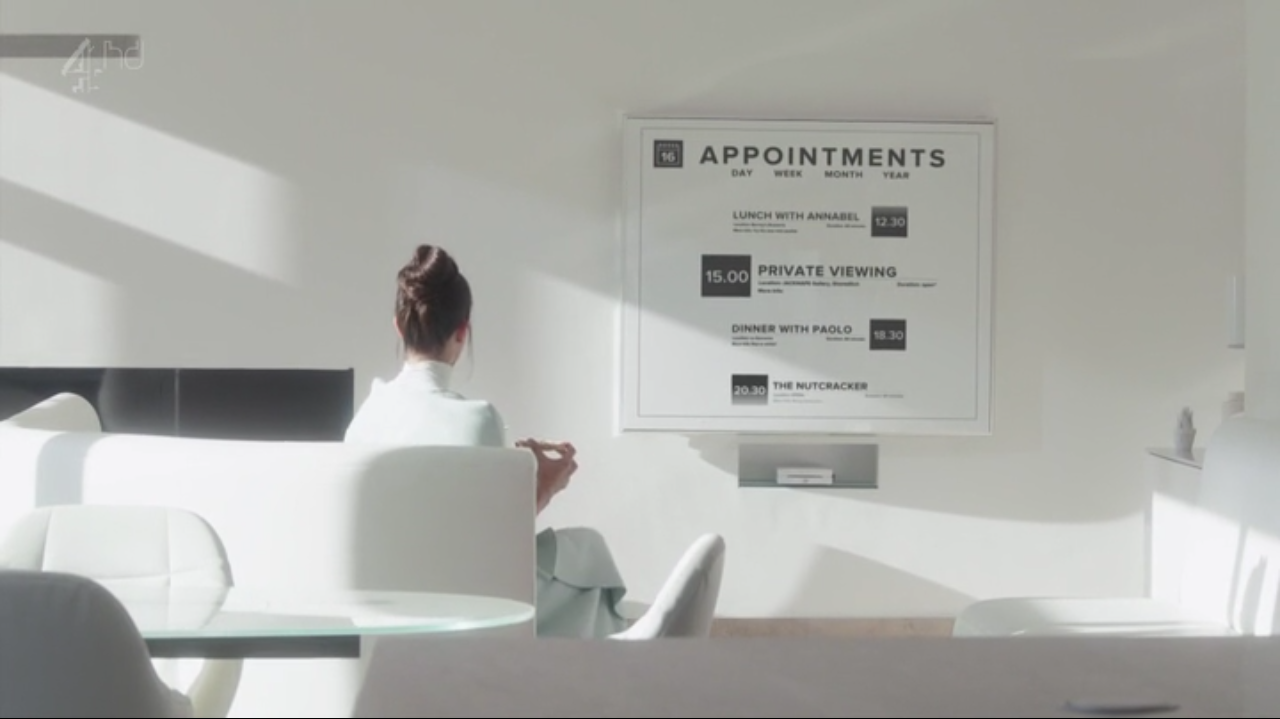During a recent conversation I had on the Internet of Things (IoT), the similarities recognised between this technological concept, and an episode of Channel 4’s drama Black Mirror, sparked an interesting discussion about the potential dark side to the rise of automated technology.
To recap on a previous blog, IoT refers to the ever-growing network of everyday physical objects, from watches to ovens, that autonomously connect to the internet and communicate with objects around them, and with us. The physical world is becoming one big connected information system.

Charlie Brooker’s Black Mirror is a series of speculative dark dramas, based on how the world has changed, and projecting what might be to come; literally holding up a black mirror to our current society, and reflecting back worrying possibilities. The most recent mini-series, ‘White Christmas’, features an episode with startling parallels to IoT capabilities, with a human twist.
In a futuristic world, a demanding businesswoman undergoes an operation to remove part of her consciousness, making a digital copy of herself which is implanted into a virtual body, called a “Cookie” (not data storage, but a back-up of your entire self). The reason for this is that the digital copy will then run everyday aspects of the real human’s life, from controlling the air conditioning in her house, ensuring her toast is cooked in the morning when she walks into the kitchen, to booking her meetings, and ensuring everything is “perfect”, in the same way in which IoT does autonomously. Thanks to the virtual copy, the human no longer has to carry out the little tasks, to free up her time for more “important” matters. Sounds familiar.

During the episode, the darker view on the subject comes from the need to repeatedly torture the digital copy to become a slave to her “real” counterpart’s needs. Even though the Cookie is an artificial copy of consciousness, effectively a computer programme, the fact that it retains its human awareness whilst acting as the enslaved IoT controller raises issues.
Though IoT makes our lives easier, is removing the “mundane” and “everyday” from our lives simply making ourselves less human? The “real” businesswoman certainly seems colder and more inhuman than her copy. Being “always on” comes at an obvious price.
In addition, the episode raises the issue of security around IoT. In the case of Black Mirror, we still have a human, albeit a digital copy, actioning the personal aspects of her real counterpart’s life. Yet she sees everything she does, through multiple surveillance cameras. IoT doesn’t “spy” on us in this personal sense, but the amount of data it gathers definitely does. Security will become a big issue as IoT integrates more and more into everyday aspects of our connected homes and lives.
So before you sign up to a button that automatically replaces the milk in your fridge when it’s empty, think about the points raised here, as well as the real-time, unique and irrecoverable human experiences that will slip by.
We think you might like these posts too
© 2025 Retail Assist Limited. The Hub Floor 5A, 40 Friar Lane, Nottingham, NG1 6DQ.
Registered in England. Company number: 03790674
info@retail-assist.com | +44 (0)115 904 2777
Website Designed & Built by we are CODA